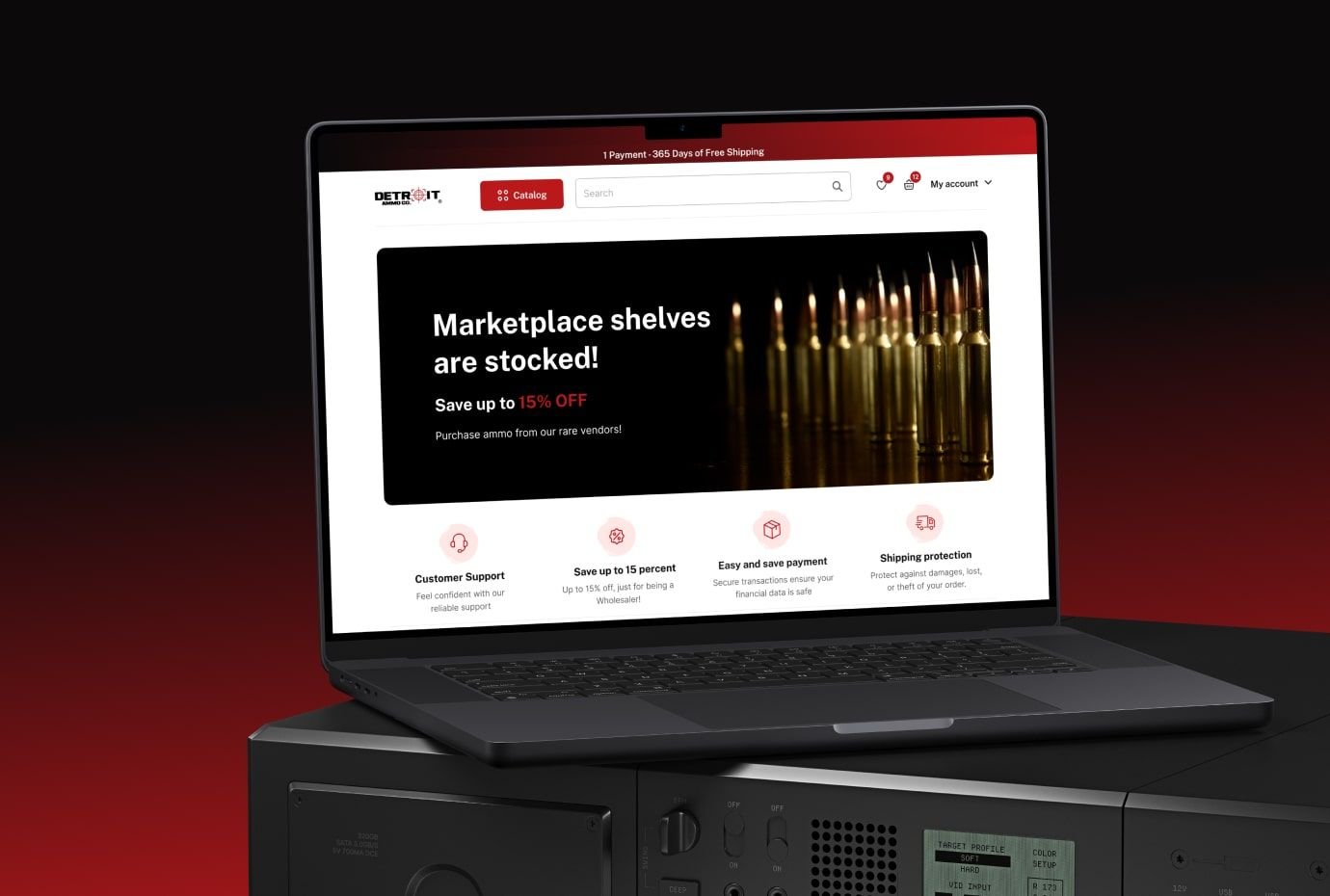Adopt a ready-made ecommerce solution based on a framework or develop your own? Such a double bind faced by future owners of online stores. This choice is of great importance and warrants meticulous deliberation. That’s because it will determine how quickly this web-based project will be realized and how easy it will be to scale and develop it in the future.
By the way, it makes sense to point out that both options are popular among online businesses. According to a Statista study, 51% of ecommerce companies used off-the-shelf platforms such as WooCommerce, Magento, or Shopify. The remaining 49% preferred to invest in custom development.
In this article, we'll extensively appraise each option. So, you will know exactly what option suits you best.
Ecommerce development framework vs custom development: metrics to compare
Starting out, it is advisable to look at several key factors in the determination process between framework-based solutions and full customization.
These include:
- Release timeframe: The timeline for launching online may dictate the choice between a framework-based solution and full customization;
- Financial limitations: The upfront and recurring expenses for each option can vary significantly and have a substantial impact on the overall return on investment (ROI);
- Adaptability and flexibility: Depending on the expected growth and the need for future customization, businesses must assess which solution can better support their long-term goals and requirements;
- Technical capabilities: The in-house technical skills available can influence the choice, as custom solutions typically need more advanced expertise for development and upkeep;
- Feature requirements and interconnectivity obligations: The needed functionalities and third-party integrations can steer the choice towards a more flexible custom solution or a feature-rich off-the-shelf platform.
Regardless of the approach you select, it has higher priority partnering alongside experienced experts who provide online marketplace development services. They can provide insights, assess options, and guide you toward a decision that secures your online business's long-term success.

What is an ecommerce development framework?
Crafting digital products or websites through coding from scratch is an option, yet this practice is not regularly employed today, apart from specific instances. Commonly, readily available solutions (such as website builders) or frameworks are used to create websites.
So, to put it simply, an ecommerce framework is a ready-made solution to design and build a website. It contains all the necessary infrastructure and tools to create and manage online stores and other e-commerce websites.
The main features include:
- Product catalog management: Built-in tools for adding, editing, categorizing, and searching products. Includes support for various product attributes (size, color, weight) and the ability to import and export the catalog in CSV, XML, and other formats;
- Content management system (CMS): Ability to edit and publish static and dynamic pages of the site. Tools for creating and managing blogs, news, and other content. Includes integration with SEO tools for content optimization;
- Order and payment management: A Baymard Institute study found that 18% of U.S. online shoppers have abandoned an order in the past quarter solely due to a lengthy or complicated checkout process. Frameworks can integrate with various payment gateways such as PayPal, Stripe, Authorize.Net, and others. Also, you get automation of order processing, tracking and fulfillment, generation of invoices, receipts, and other documents;
- User and role management: Register, authenticate, and authorize users with role support. Manage user profiles, permissions, and privileges;
- Marketing tools: Manage promotions, discounts, coupons, and other marketing activities. Integrate with email marketing systems, analytics, and other external services.
The undeniable value of using modular custom ecommerce platforms is bringing new products and features to market much faster. Frameworks are built on a modular principle, where each module is responsible for a specific functionality.
Trending in 2025 commercial and open source ecommerce framework examples:
- WooCommerce: Popular solution for creating online stores based on WordPress. It is a free, flexible, and extensible plugin that is supported by developers and a large number of users.
- Adobe Commerce: One of the best and quality platforms, which is perfect for creating an online store. In some ways, it can be complicated for an inexperienced user (unlike a website builder), but its capabilities are much wider than other similar platforms.
- PrestaShop: Another popular ecommerce CMS for creating and managing online stores in the world. It is an open-source system that is based on PHP and MySQL, which makes it easy to find a developer - there are many programmers around the world working with PrestaShop.
- OpenCart: It is a professional platform for creating online stores with minimal costs. Characterized by high speed and low requirements for the ecommerce CMS server. With its help, the creation of a simple and saleable resource is available even to beginners. Today, the platform's community has about 50,000 users.
- Shopify: It is a multifunctional trading platform where you can create your online store and start selling on the global market or in your region. The special feature of the Shopify platform is the ease of start-up for entrepreneurs unfamiliar with online business. Moreover, Shopify offers flexible headless architecture, with enhanced development and security capabilities.
- GoDaddy: Mostly known for its domain registration, GoDaddy also provides a website builder. It has AI-powered tools for customization, straightforward editor, a substantial range of customizations, and marketing and SEO tools.
Lastly, the ecommerce development framework is a fairly comprehensive, flexible, and extensible solution that greatly simplifies and accelerates the development of online stores. And all of this is done by providing the necessary functionality "out of the box."
What is custom ecommerce development?
Now, let's look at custom development. It is the development from the ground up or simply the "guarantor of digital excellence.”
Unlike "boxed" framework platforms, custom development can be completely tailored to the needs of the business and is large enough to cover all business processes. In addition, framework solution developers are vendors who don't know your business and have no interest in benefiting you specifically. In addition to your company, your "box" will be used by hundreds of others, and this negates the flexibility of the solution.
Custom development will allow the enterprise to achieve the highest productivity, but it requires a large amount of time, money, and high professionalism from performers.
The main aspects include:
- Strict adherence to requirements: Ecommerce custom development allows you to build the software you need, exactly the way you want it. No third-party features, long downloads, and remote databases - nothing extra;
- Harmonious development: Custom software grows with your business. Unlike packaged solutions, where the user has no control over updates, a custom software customer can modify and evolve the software according to their vision and the current needs of the business;
- Control and ownership: Custom software is the property of the customer, and even the developer has no right to dispose of it without permission. The uniqueness of a custom ecommerce solution not only increases competitiveness but also increases cybersecurity within the organization. Any bugs or errors identified by the customer should be fixed immediately by the development team.
Custom solutions may seem expensive compared to packaged software, but this often reflects only a short-term perspective. Custom software is always more reliable. Built specifically for your business, it will stay relevant and be updated to meet your changing needs.
Moreover, custom solutions are compliant, enabling you to build marketplaces even in highly regulated niches, such as medicine and firearms.

Source: Custom Firearm Marketplace Case Study
Key comparisons
| Point of reference | Ecommerce development frameworks | Custom ecommerce development |
| Development speed | Faster development, as frameworks provide pre-built functionality and structure. Developers can focus on customization rather than building core features from scratch. | Slower, as everything needs to be built from the ground up. More time is required for planning, design, and implementation of the entire system. |
| Cost efficiency | Generally more cost-effective, as frameworks leverage reusable components and require less development time. Ongoing maintenance and updates are often cheaper. | Typically more expensive due to the time and resources required for custom development. However, the overall cost may be justified by the tailored solution that meets specific business requirements. |
| Flexibility and scalability | Flexible to an extent but may be limited by the framework's architecture and constraints. Scaling the platform can be easier, as frameworks often provide built-in scalability features. | Highly flexible and scalable, as the solution is tailored to your specific requirements. The system can be designed to accommodate future growth and changing business needs. |
| Customization options | Customization is possible but may require workarounds or extensions to the framework. The level of customization is limited by the framework's core structure and functionality. | Unlimited customization options to fit your exact needs. The solution can be tailored to your unique business processes, user experience, and visual design requirements. |
| Maintenance and updates | Frameworks are regularly updated by the community, making maintenance and updates easier. Upgrades and security patches are often provided by the framework developers. | Maintaining and updating a custom solution requires dedicated resources and effort. Responsibility for updates and bug fixes lies with the development team or the client. |
| Technical expertise | Developers with experience in the framework can be more readily available, as the frameworks have a larger user community. | Requires specialized developers with expertise in the specific technologies and architecture used for the custom solution. The talent pool may be more limited. |
| Third-party integrations | Frameworks often have a wide range of pre-built integrations with popular third-party services and tools, making it easier to extend the platform's functionality. | Integrating with third-party services may require custom development work, but can be tailored to specific needs. |
| Adoption and community support | Ecommerce frameworks have large, active communities that provide support, documentation, and a wide range of extensions and plugins. | Custom solutions may have a smaller community and less readily available support resources, depending on the technologies used. |
Pros and cons summary
| Criteria | Ecommerce development frameworks | Custom ecommerce development |
| Pros |
|
|
| Cons |
|
|
Case studies and real-world examples
A business using an e-commerce framework - Kylie Cosmetics
Kylie Cosmetics, founded by Kylie Jenner, utilizes the custom ecommerce platform Shopify for its online store. Shopify allows Kylie Cosmetics to manage their product inventory, process orders efficiently, and provide a user-friendly shopping experience for customers. With the help of Shopify's features and integrations, Kylie Cosmetics has been able to scale their online business globally and reach a wide audience of makeup enthusiasts.

Source: Mageplaza
A business with a custom e-commerce developed site - Tesla
Tesla, the electric vehicle manufacturer, has an ecommerce custom development site to sell their cars, energy products, and merchandise. Tesla's custom site allows them to create a unique and immersive shopping experience for customers, showcasing their high-tech products and innovation. By developing their own custom ecommerce platform in-house, Tesla has complete control over the design functionality, and security of their online store. The company's CMS and commerce solution streamlined their online operations.
The importance of choosing the right ecommerce solution for a business based on its unique needs and objectives - is demonstrated in these examples. Whether using an ecommerce framework or developing a custom site, businesses can learn valuable lessons from successful brands in optimizing their online presence and driving growth.
How can Codica help you choose the right approach
There are between 12 and 24 million active ecommerce sites worldwide, so it's helpful to turn to custom ecommerce development to stand out in the crowd.
For instance, a few years ago we implemented a complex custom ecommerce solution for a UK client. It ultimately combined both business-to-consumer (B2C) and customer-to-consumer (C2C) components, enabling users to sell not only goods but also offer services. Check the video below to see how the solution works.
In order to develop such a remarkable and large-scale solution, Codica specialists went through the following steps:
- Designed an intuitive and attractive user interface;
- Developed a minimum viable product (MVP) to receive immediate initial customer feedback;
- Integrated SEO best practices to improve the platform's visibility and ranking in search engine results;
- Ensured the security, reliability, and scalability of the entire system.
This solution united several functional platforms in one convenient interface. The created customized platform successfully connects B2C and C2C segments.
Codica has more than 10 years of experience in custom software development services. Our expert team will advise and help you create a website that will make your wishes a reality.

Making the right ecommerce choice
So, which is the best option to choose: ecommerce framework or custom development? Well, there's no definitive answer to this question.
The enactment of a successful online store requires important decisions and careful planning. Entrepreneurs who have decided to enter the ecommerce arena should opt for the right implementation solution, whether it is developing a store from scratch or using ready-made framework platforms.
An off-the-shelf "platform" accomplishes with less effort, but there are fewer options for customization and modification. Building from scratch requires more time and effort, but allows you to create a store that is completely customized to your needs.
Even small ecommerce businesses may need custom development when an owner wants to tailor their store to their specific needs and make it scalable and secure. In such a case, it is better to start with minimum viable product development.
If that’s the case, or you need custom development because you have grown well enough and need changes, contact us. Our team is eager to guide you and create a stunning ecommerce store for your business.
